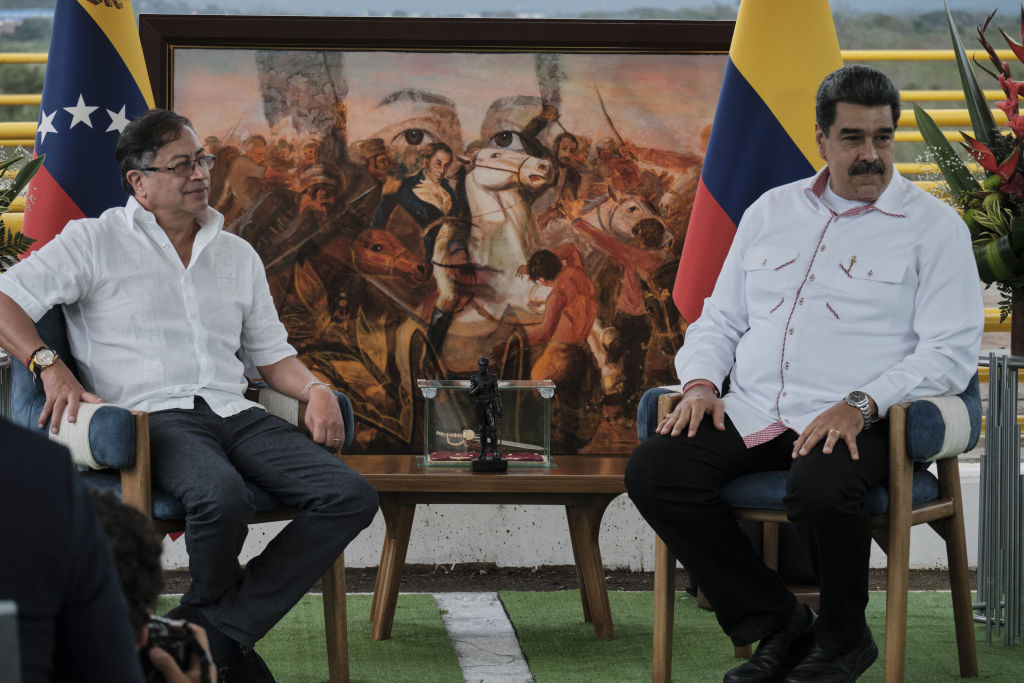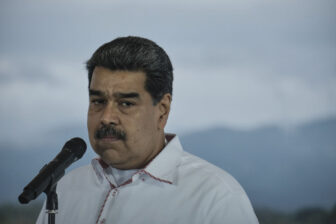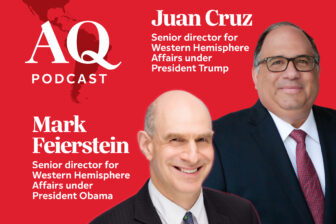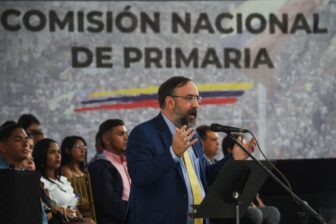On April 25, Colombia will host an international conference to discuss the political situation in Venezuela. Ahead of the meeting in Bogotá, which is set to be attended by representatives of countries in Latin America and Europe as well as the U.S., President Gustavo Petro has called for “more democracy [and] zero sanctions.” But “more democracy” is an understatement: The goal is to have democracy in Venezuela, period.
The Colombian government is the closest witness to the tragedy Nicolás Maduro has created in Venezuela. Some 2.5 million Venezuelan migrants are in Colombia, making this country the largest recipient of migrants in the region and second globally behind Turkey, which has taken in more than 3.5 million Syrians. In other words, Colombia has opened its doors those fleeing a nation with circumstances similar to a war.
It is important to remind the participants of this meeting that, according to the World Food Program, at least 9.3 million Venezuelans are suffering from starvation the largest number in the Western Hemisphere, comparable only with food crises in Yemen, the Democratic Republic of Congo and Afghanistan. The Organization of American States, visited by Petro on April 19, has said that more than 12,000 people have been arbitrarily detained since 2014, according to a report on crimes against humanity made by a panel of independent experts.
Human Rights Watch has stated that nearly 18,000 extrajudicial killings have been carried out by Maduro’s security forces, and hundreds have been tortured, according to the UN Fact-Finding Mission, which also cited reports that “Cuban State agents have instructed, advised and participated” in intelligence activities.
Sanctions relief cannot be used now to guarantee free and fair elections in Venezuela when not even the most basic rights are protected by Maduro’s regime. Petro has benefited in the past from regional action to defend human and political rights: The Inter-American Court on Human Rights condemned a decision—later overruled—by an inspector general in December 2013 to oust him from the Bogotá mayorship and ban him from office for 15 years. So it is all the more imperative for Petro to pay heed to the civil and political rights of the estimated 7.2 million Venezuelan migrants and refugees—only about than 107,000 of whom have been allowed to register to vote in elections.
What’s more, many potential Venezuelan presidential candidates are disqualified, in exile or under constant threat with no guarantee their political rights will be recognized by the time elections are held. Are these conditions for a free and fair election?
Elevating environmental concerns
If fewer sanctions is a goal for the conference, less deforestation of the Venezuelan Amazon should be one as well. The president of Colombia has established the preservation of the South American rainforest and tackling climate change with renewable energy as a top priority. But it has said little about the 1.4 million hectares deforested in the Venezuelan Amazon, which represents the fifth-fastest rate in the world. Furthermore, Maduro has not been held accountable for Venezuela’s almost 8 billion cubic meters of gas flaring, making the country the fifth-worst performer globally, according to the last World Bank report. Tackling climate change is a global shared responsibility that goes beyond ideology.
The upcoming summit in Bogotá represents almost the thirtieth attempt at dialogue and negotiations with Venezuela’s authoritarian regime. Maduro has used past diplomatic efforts to gain time, demoralize Venezuelans, fracture the international community and smash the opposition. This round may not be any different, unless Petro demands from Maduro the same policies on human rights and on the environment that he has demanded in other contexts—such as within his own country.
—
Smolansky is a MIPP candidate at Johns Hopkins University and former mayor of El Hatillo in Caracas, Venezuela. Exiled since 2017.







